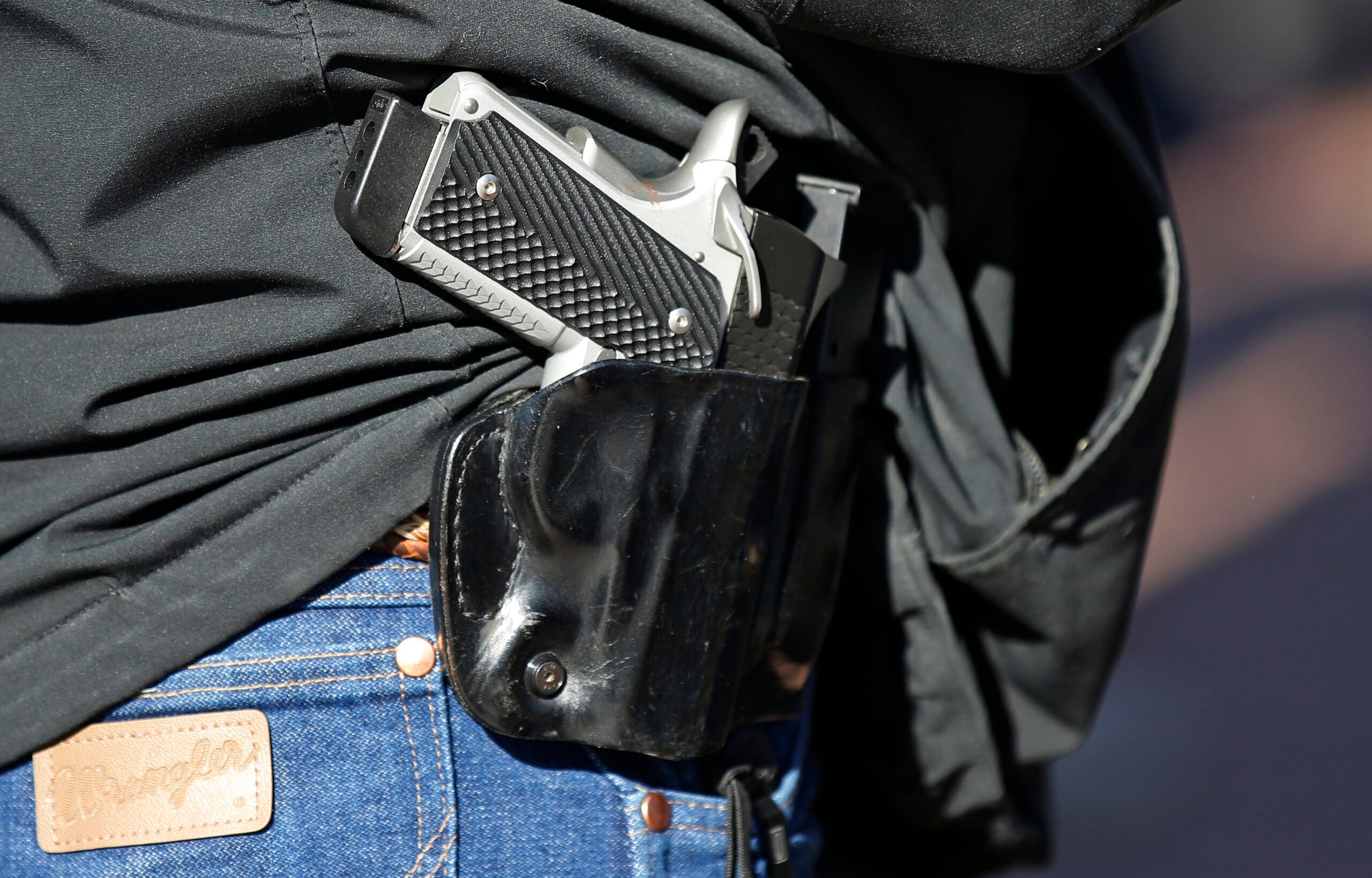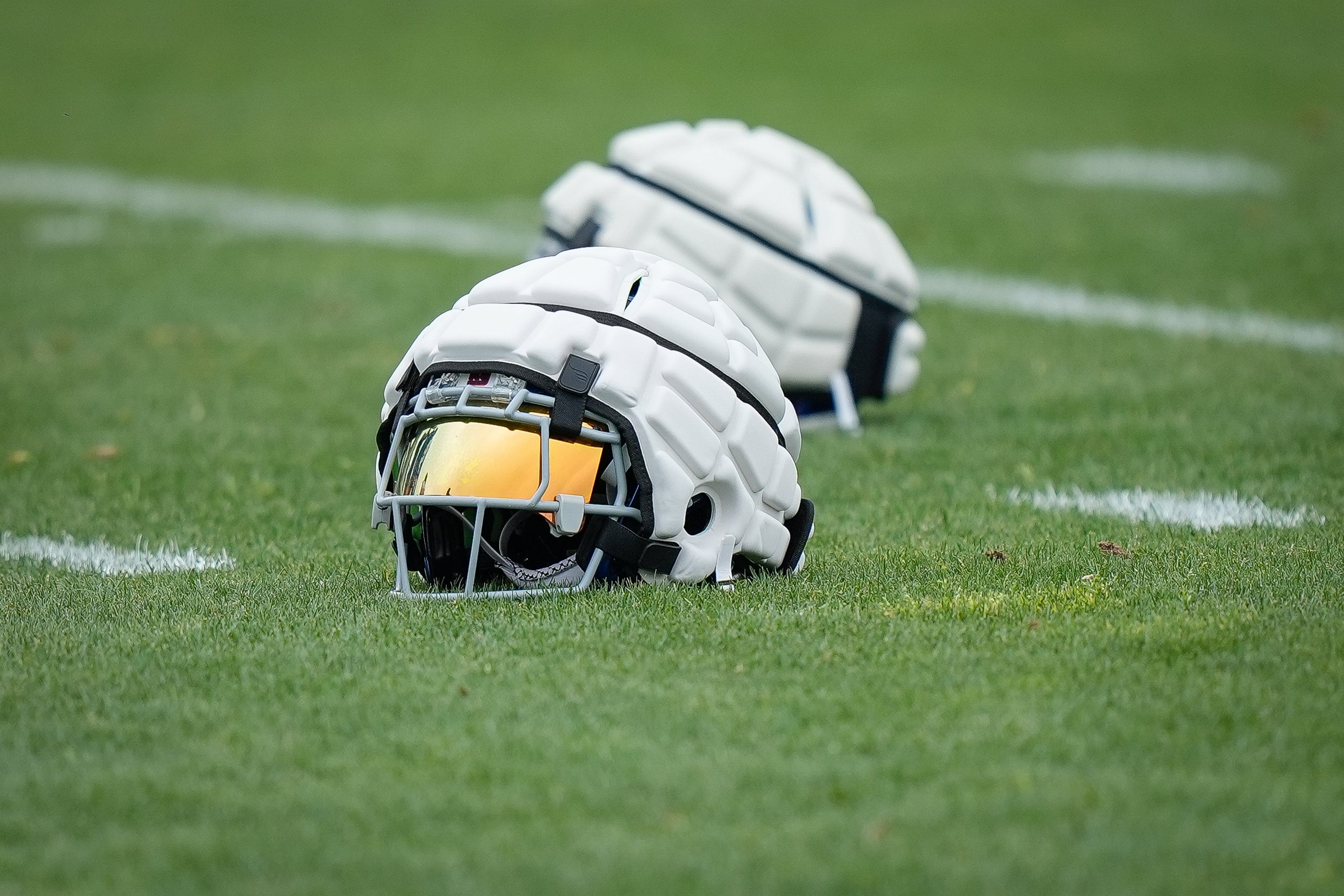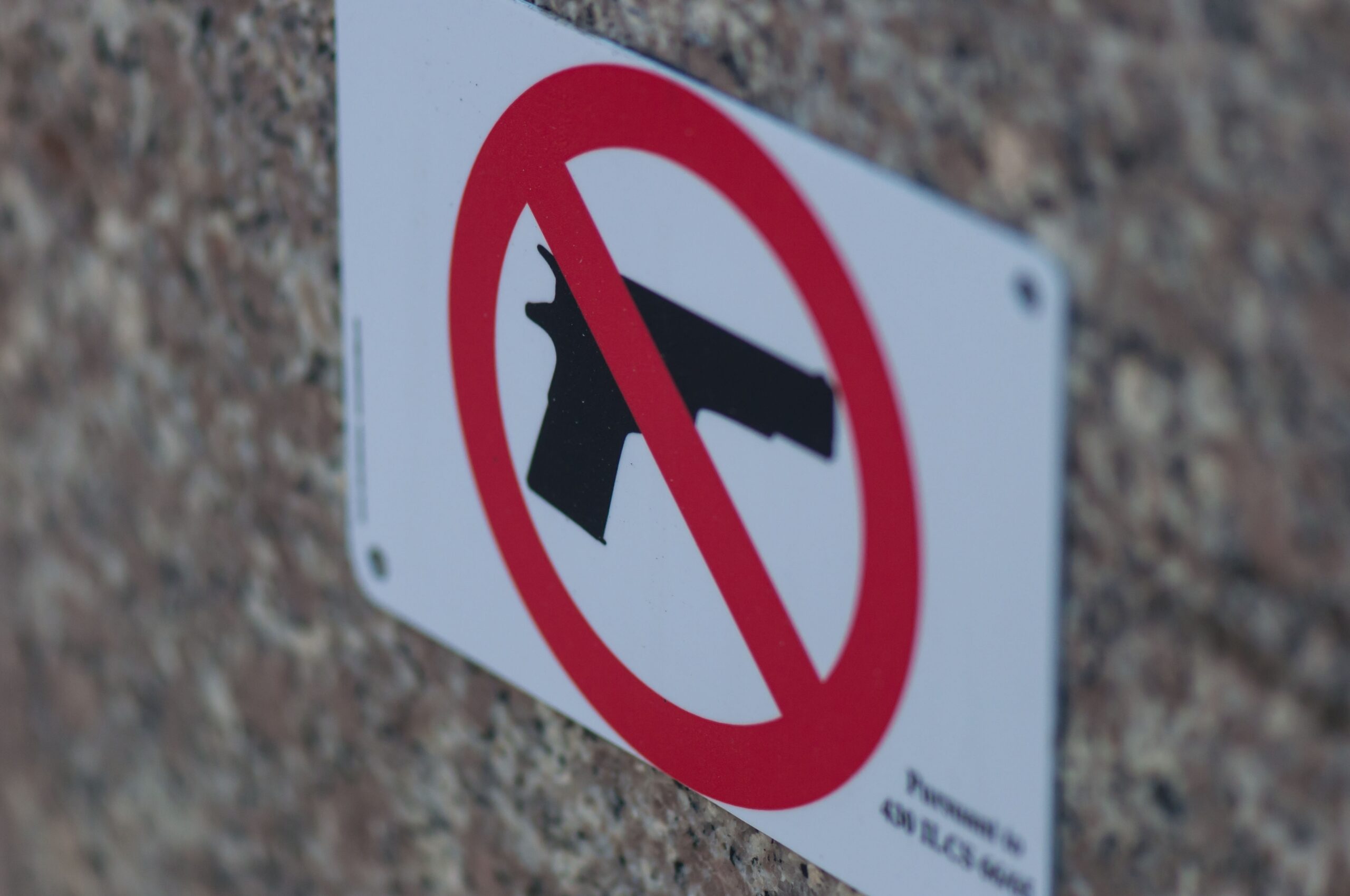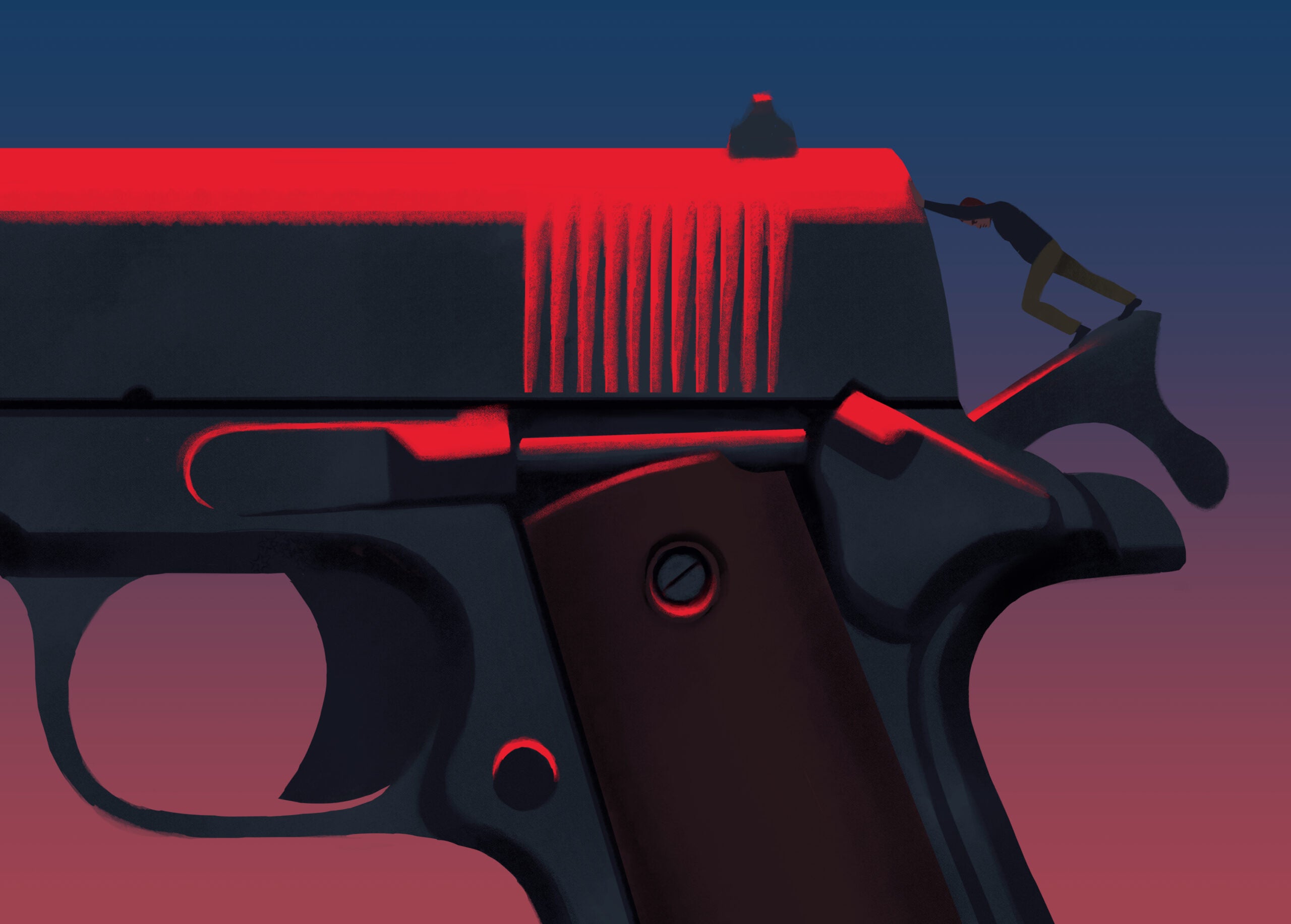Despite not being able to purchase firearms directly, many teens have access to guns, according to a new study released this week by the American Academy of Pediatrics.
The study looked at National Youth Risk Behavior Survey data from 1993 to 2017 to determine if the National Instant Criminal Background Check System (NICS) changed adolescents’ gun-carrying behavior.
It found, on average, about 6 percent of teens reported carrying a gun. Of those adolescents, about 17 percent of them were from states with universal background checks.
Stay informed on the latest news
Sign up for WPR’s email newsletter.
Meanwhile, data from the state Department of Public Instruction’s Youth Risk Behavior Survey found about 5 percent of Wisconsin high school students carry a weapon to school.
These findings come at a time when Wisconsin is recovering from two teenagers being shot by police officers inside their high schools and other districts across the state have been dealing with threats of violence.
On Monday, a Waukesha South High School teen was shot in the thigh and twice in the arm after police say he pointed a pellet gun at a classmate’s head and later at officers.
The 17-year-old student is in stable condition at Children’s Wisconsin and is expected to be charged with multiple felonies when he is released from the hospital.
On Tuesday, a 16-year-old Oshkosh West High student stabbed the school’s resource officer and was then shot by the officer, according to police.
Schools in Germantown and Grafton had increased police presence on campuses after receiving threats that were eventually determined not to be credible.
The Sparta School District canceled classes district-wide Tuesday after receiving information that a student was possibly in possession of a missing handgun.
The study by the American Academy of Pediatrics did not find evidence that putting in place universal background checks, the first one was adopted in 1998, is independently associated with a national reduction in teens’ gun carrying when controlling for individual, state, and time effects.
“We found that adolescents living in states that required universal background checks on all prospective gun buyers were less likely to carry guns compared with adolescents living in states that only require background checks on purchases through federally licensed gun dealers,” the study reads.
Wisconsin doesn’t require universal background checks for firearms sales.
DPI conducts its Youth Risk Behavior Survey every two years as part of a national effort by the Centers for Disease Control and Prevention. The survey is a self-administered, anonymous, 99-item questionnaire high school students take during the school day.
The latest data includes 2,067 students in 43 public, charter, and alternative high schools in 2017.
About 5 percent of students — or about 100 students — said they carry a weapon to school, 7 percent of students said they feel threatened at school, and 6 percent said they have skipped school because of a safety concern. Twelve percent of kids say they never or rarely feel safe at school.
Kate McCoy oversees the study for DPI. She said the number of students bringing weapons to school has been going down since the early 1990s when about 9 percent of teens were carrying weapons.
McCoy said the recent violence at Wisconsin schools could change students’ perception of their safety at school.
“What’s interesting about this data is over time, kids have reported that they are experiencing fewer instances of fighting, less pushing, shoving, kicking, so in that way, schools are much safer,” McCoy said. “Yet at the same time, we are starting to see an uptick in the percentage of students who feel they feel less safe.”
McCoy said it is worth looking into if hearing about violence at schools in Wisconsin or across the country is affecting people’s sense of safety.
The incidents at Waukesha and Oshkosh high schools prompted lawmakers to issue statements Monday and Tuesday. Gov. Tony Evers issued a statement Tuesday saying no student “should be afraid to go to school or be in the classroom.”
But state legislators have been unable to come to a consensus when it comes to gun reform, despite a Marquette University Law School poll in August that showed more than 80 percent of the public support it.
In October, Evers called for a special session on gun control. He wanted the Legislature to take up two pieces of legislation. The first would have expanded universal background checks in Wisconsin.
The second was a bill to create an extreme risk protection order process — often called a “red flag” law — which would allow loved ones and law enforcement to petition to have guns taken away from an individual if a judge deems them a danger to themselves or others.
The Republican-controlled Legislature bypassed the special session. Republicans have argued the bills violate Second Amendment and due process rights. They also declined to advance their own gun-related bills for the special session. WPR reached out to state Senate Majority Leader Scott Fitzgerald, R-Juneau, and Assembly Speaker Robin Vos, R-Rochester, Wednesday. They couldn’t immediately be reached for comment.
Wisconsin Public Radio, © Copyright 2025, Board of Regents of the University of Wisconsin System and Wisconsin Educational Communications Board.




